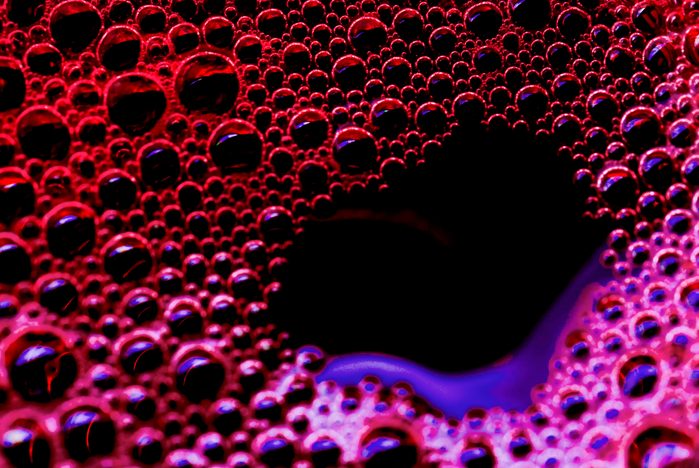I Drank Wine Every Day for a Week—Here’s What Happened
Updated: Jan. 14, 2024

From your sleep to your skin, one health editor's experiment helped them discover how a nightly glass of red can have major effects on your overall health.
Our editors and experts handpick every product we feature. We may earn a commission from your purchases.
It would probably shock college-age me, but honestly? I’m not much of a drinker. If I’m going out with friends or having a movie night with my mom I might have a cocktail or two, but for the most part, alcohol really isn’t a part of my routine. I’ve never been the type to have a drink to unwind, so when I decided to try a week-long experiment of drinking wine every day, I was as curious about the potential benefits as I was the potential pitfalls.
From my work as a health editor, I’ve learned that red wine can help lower cholesterol, support cognitive function and even lead to a longer life—but I’m not likely to see those effects on a day-to-day basis. So I wanted to find out what drinking a glass of red wine every day noticeably does to your body…the good, and the bad.
I Ate Cheese Every Day for a Week—Here’s What Happened
Drinking wine every day for a week
I approached this experiment with a bit of a ritual. Each evening, when I was ready to relax for the night, I had a glass of red wine.
During my week, it just so happened I had the good fortune to tour an Almond Breeze orchard in Northern California, and the family who owned the orchard also let us try the Cabernet Sauvignon from their vineyard. (Thanks, Grindstone Wines!) Other than that, for my wine-every-night experiment I wasn’t too particular about the type (it varied from shiraz and zinfandel to merlot) or the pour (confession: Sometimes it might have been closer to two glasses).
No matter what, I was sure to get five ounces, the standard according to the National Institute on Alcohol Abuse and Alcoholism.
What Is the Safest Amount of Alcohol to Drink?
Red wine every day and sleep
There were two major patterns I noticed in the hours immediately following my nightly imbibing.
First of all, I have to say, I totally get the impulse to have a drink after a long day now. Slowly sipping on red wine helped me feel more physically relaxed, and a little sleepier. Los Angeles-based, board-certified holistic nutritionist Katie Bressack, INHC, AADP, says that’s because alcohol is a depressant, “and therefore calms your nervous system down by making you feel drowsy. It also causes brain activity to slow down, which causes you to also feel sleepy.”
Unfortunately, though, that sleepiness felt like a fake-out. I would get tired earlier and faster, but my sleep was restless, and I usually woke up at least once mid-snooze each night.
Here’s How to Fall Back Asleep After Waking Up in the Middle of the Night
According to The Sleep Foundation, I’m not alone. The organization’s website explains that as your liver slowly metabolizes alcohol, the substance can continue to circulate throughout your body. That means that though it can make you sleepy quickly, your blood alcohol content decreasing during the night as your liver enzymes are hard at work can cause disruptions to that sleep.
“Alcohol is definitely not great for restful sleep!” Bressack agrees, explaining that in addition to your liver’s process causing problems for your rest, the substance can also raise a variety of other disruptive issues within your body.
“It’s a diuretic, so you might need to get up and use the bathroom in the middle of the night. The sugar content can raise your blood sugar and you wake up feeling alert in the middle of the night. Alcohol also affects your REM sleep, so you are never getting into that deep sleep that our body needs to feel rested and restored the next morning. Studies also show that alcohol consumption increases sleep apnea.”
(I can neither confirm nor deny this last point—you’ll have to take it up with my cat.)
Here’s the Best Position to Sleep in If You Snore, Says a Sleep Doctor
Red wine and digestion
With all the buzz around wine pairings, I was surprised to discover I didn’t really crave anything alongside my nightly glass of red. I found it was actually filling enough to be a treat by itself—and it turns out that might be because of when I was drinking it, which was typically shortly after 6 p.m. “A glass of red wine can definitely [make you] feel full, especially when having it at the beginning of the evening,” Bressack explains. “I feel like it also depends on the person. Some people share that alcohol stimulates their appetite, where other people feel a reduction in their appetite.”
The Healthy @Reader’s Digest’s Medical Review Board co-chair Latoya Julce also notes the caloric content of red wine can contribute to that full feeling—and it can add up. At 120 calories, she says drinking one glass of red wine each night equals 840 calories a week, or 3,360 calories a month.
Regardless of what it does to your appetite, though, drinking wine every day probably won’t be very kind to your bowel movements. In my experience, they were looser and more watery—and even a darker color than usual.
“Unfortunately this can be another side effect of drinking,” Bressack says. “Alcohol isn’t the best for digestion and often your bowel movements can be more like diarrhea than the ideal smooth sausages, or can even cause constipation for some people.”
Smooth sausages. We said what we said.
Types of Poop and What Your Stool Can Tell You About Your Health
Red wine and skin
If you’re approaching an event when you want to be photo-ready, or you need to feel your most confident for a big presentation at work, you might want to lay off the alcohol. During my week of drinking red wine every day, I saw a breakout blossom across my forehead—something Bressack says can happen because of wine’s sugar content and the effects it has on digestion.
Thankfully, she has a recommendation: “Perhaps add in a probiotic and other fermented foods to help aid your gut flora to see if this helps reduce breakouts in the future.”
Pinot noir and pickles, anyone?
Dermatologists Say This 1970s Anti-Aging Ingredient Is Still the Gold Standard for Gorgeous Skin
Red wine and mental health
Even though I probably won’t continue to incorporate a glass of red into my daily routine, I was surprised to find how much I liked the ritual. Whether I was sliding into the tub with a glass, sitting down with it alongside my journal or sipping it over dinner with friends, the intentional decision to relax that came with drinking wine every day brought me a special kind of peace.
Obviously, you don’t need alcohol every single night for that; in fact, to avoid hurting your brain health, the recommended standard number of drinks per week is four. But I did learn how important setting out to have that “me-time” really is…and if I decide to enjoy an occasional Malbec here or there while I’m at it, well, it turns out red wine is the liver-friendliest alcoholic beverage. This time around, for the sake of research, this wine-every-day trial was worth a go.

